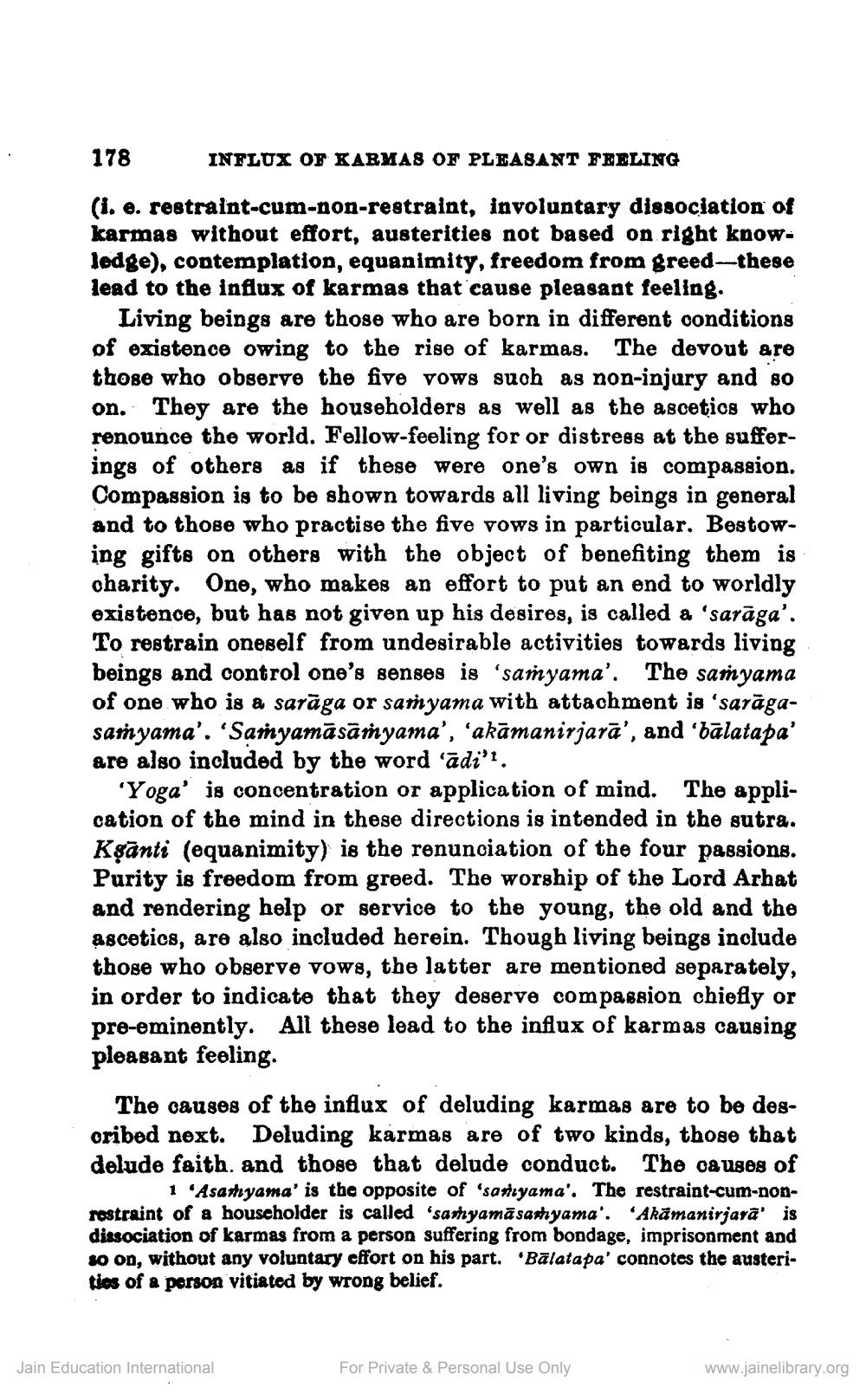________________
178
INFLUX OF KARMAS OF PLEASANT FEELING
(i. e. restraint-cum-non-restraint, involuntary dissociation of karmas without effort, austerities not based on right knowlodge), contemplation, equanimity, freedom from greed-these lead to the influx of karmas that cause pleasant feeling.
Living beings are those who are born in different conditions of existence owing to the rise of karmas. The dovout are those who observe the five vows such as non-injury and 80 on. They are the householders as well as the ascetics who renounce the world. Fellow-feeling for or distress at the sufferings of others as if these were one's own is compassion. Compassion is to be shown towards all living beings in general and to those who practise the five vows in particular. Bestowing gifts on others with the object of benefiting them is charity. One, who makes an effort to put an end to worldly existence, but has not given up his desires, is called a 'sarāga'. To restrain oneself from undesirable activities towards living beings and control one's senses is 'samyama'. The samyama of one who is a sarāga or samyama with attachment is 'sarāgasaryama'. 'Samyamāsāmyama', 'akāmanirjarā', and 'bālatapa' are also included by the word 'ādi'.
'Yoga' is concentration or application of mind. The application of the mind in these directions is intended in the sutra. Kşanti (equanimity) is the renunciation of the four passione. Purity is freedom from greed. The worship of the Lord Arhat and rendering help or service to the young, the old and the ascetics, are also included herein. Though living beings include those who observe vows, the latter are mentioned separately, in order to indicate that they deserve compassion chiefly or pre-eminently. All these lead to the influx of karmas causing pleasant feeling.
The causes of the influx of deluding karmas are to be desoribed next. Deluding karmas are of two kinds, those that delude faith, and those that delude conduct. The causes of
1 'Asanyama' is the opposite of 'sanıyama'. The restraint-cum-nonrestraint of a householder is called 'samyamāsamyama'. “Akamanirjarā' is dissociation of karmas from a person suffering from bondage, imprisonment and so on, without any voluntary effort on his part. 'Balatapa' connotes the austerities of a person vitiated by wrong belief.
Jain Education International
For Private & Personal Use Only
www.jainelibrary.org




